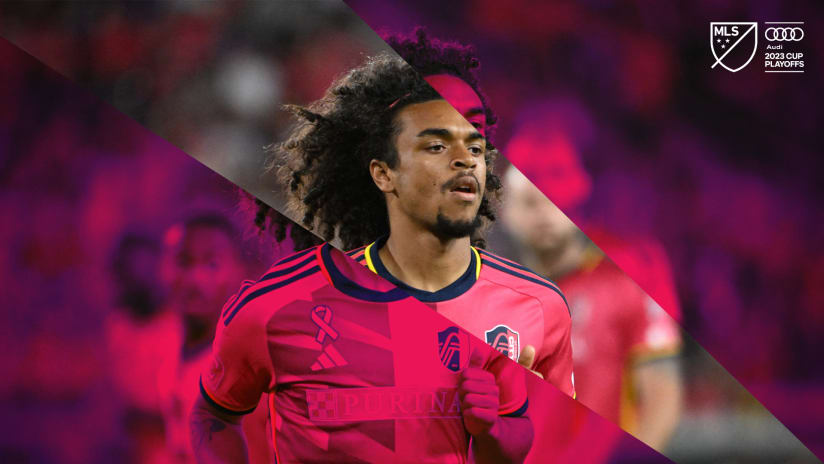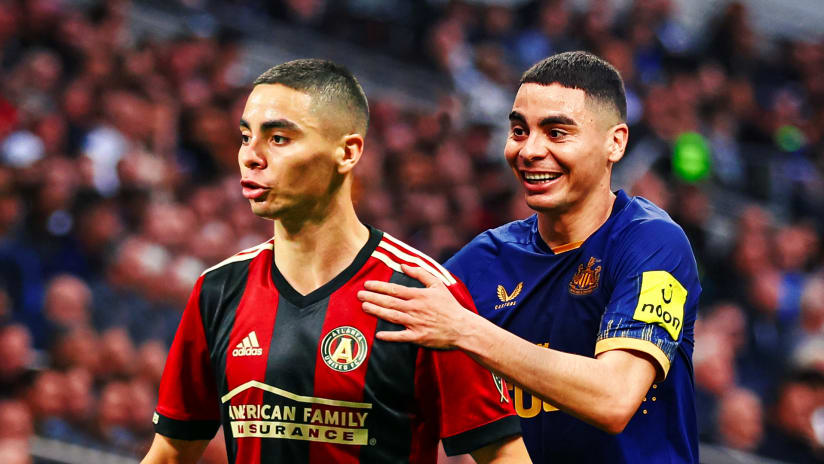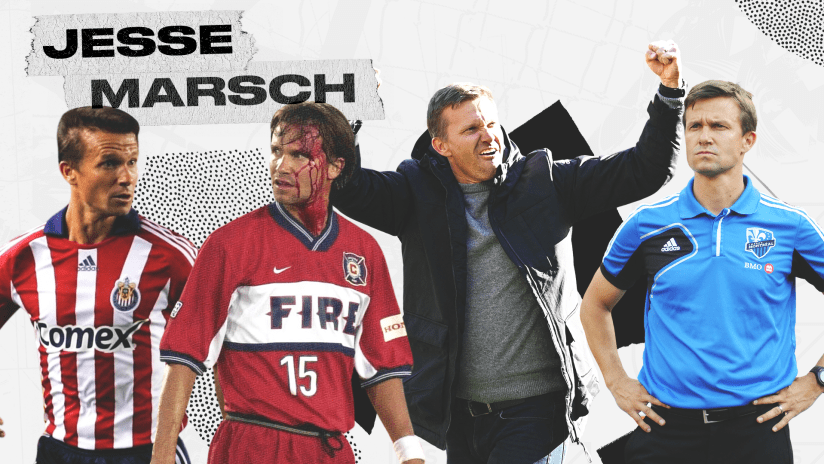I love falling down the rabbit hole when it comes the history of soccer in the United States, and putting together our Team America longform was no exception.
It’s a bit of a snowball effect: you start by interviewing five or six players about their time with the team – then you realize you’d like to see “a couple” of games, but end up watching every one you can find on VHS. You track down old match programs and team-related ephemera on eBay. You wonder if you’ve missed anything. “Well, maybe I need to set up a phoner with the mascot.”
I went so far as to scour the halls of RFK Stadium for any potential remnants of the team itself. I didn’t find any.
In any case, after all of that, I ended up with much more than I could use for a single piece. So here, then, are some anecdotes that didn’t quite make it:
On the state of US Soccer in 1983:
Alan Merrick, defender: “I’ve still got my national team shirt. It is the crappiest piece of equipment I have ever worn. Sentimental value, it’s obviously priceless. But it is one of the worst shirts I’ve ever seen. There were high schools, honestly, who had better equipment than the US national team.”
Jeff Durgan, defender: “I was no fan of the U.S. Soccer Federation back then, and they were certainly no fan of mine. The fact that I think I had seven caps in my career – it’s probably a miracle that I was given the chance to earn those seven caps, as outspoken as I was about them and against them, they were equally unhappy with me most days.
"I think we played a qualifier against El Salvador in California, and so you end up with 20,000 Salvadorans and 13 Americans (who are all related to the players); as I recall I believe the US federation got a marching band and the most famous singer in El Salvador to play and sing the El Salvador national anthem, and then when it came to the US national anthem, it was a scratchy record that didn’t finish the song. I’m somewhat exaggerating, but if you write it like that, most guys who played during that time will shake their head and say, 'Oh yeah, I remember that one.'"
On the Team America concept:
Durgan: “I had come to the Cosmos when I was 17 so I had already had four years of involvement and I really enjoyed what I was doing. It was a wonderful life, a wonderful experience and I wanted to see it continue. And it was in jeopardy. We’d already seen teams go out of business in the NASL. At the highest level, the idea was not just to rescue or sustain the NASL, but to make an effort to drive nationwide interest in the sport though national team success with the hopeful outcome that it would also drive interest in the NASL at the local level.”
Tony Crescitelli, forward: “The idea was good. I think it was great – we got to play together, learn our style. After a while, you know what the next guy is going to do. But unfortunately, like I said before, lots of guys didn’t show up. They had their own ideas. I was in right away. And the idea behind it was great, because we all played together, and we got to know each other real well.
Rudy Glenn, defender: “I think the NASL was pretty weak at that time. There were teams that were faltering, folding. In ’83, I think there were [12] teams. You have to remember, back then, they were bringing in all these superstars – when it comes to the financial side, we knew the guys that were coming over were being paid well, but we didn’t see the upside or downside when it came to the [franchises succeeding].
"Personally, myself, I would’ve never put [Team America] in NASL, I’d have had them just play friendlies year round and have us train that way – it’s tough enough to win Soccer Bowl.
On the players who chose not to join Team America:
Crescitelli: “Would I call them traitors? They have their own livelihoods. I’m sure they were getting threatened by their clubs – maybe that if they came to play for Team America and it didn’t work, they wouldn’t have a job. For me, in San Jose, I had a bad situation with [head coach] Don Popovic so it was easier for me.
Robert Lifton, team owner: “I think the other owners could’ve been more supportive, when they gave us the players we got, who were fine players, as I said, but they didn’t give us any kind of star offensive players. Understandably, the other owners knew that those were the guys who were going to attract fans to their games. But that wasn’t the original deal. I think that hurt most of all.”
Ricky Davis, midfielder, New York Cosmos (he did not join Team America): “[Not joining the team] did have an effect on me emotionally. It bothered me. It cost me a number of really good friendships, in particular my friendship with Jeff Durgan … I had no problem with people making their own decisions. And just as I respected them for making the decisions that they did, I would hope that people would respect the basis with which I made my decision. Not that they had to agree or think that I was doing the right or the wrong thing, but it was my decision. It wasn’t taken lightly.
"So yeah, it was very costly. In a lot of different ways. And just how things ended up going for that team, it broke my heart. As you look at the standings in the league and obviously as a player you’d read the paper and you’re checking out what’s going out and talking to people and hearing about the different things and so forth, well clearly one of the first things I did was look to see how Team America did .... The team didn’t have a lot of success and ultimately fell apart relatively quickly, which was probably the worst of all things to have happen.”
On Alkis Panagoulias, head coach:
Sonny Askew, midfielder: “I think Alkis had a difficult time there. He was more of a figurehead; he never said much. He never organized a thought, coaching-wise. When Gordon [Bradley] was coaching [me at the Washington Diplomats] – he’d look at it as a puzzle. He knew what the end result should look like, and he’d show us the cover of the puzzle. This is what the final result is going to look like. When too many players aren’t aware of what we’re trying to accomplish – when they haven’t seen the cover – you get in trouble. With Alkis, he’d just pick players. He’d just pick 11, say, 'Hey, you’re doing well,' and, you know, he knew the game."
Perry Van der Beck, midfielder: “[We flew] to San Diego to play the San Diego Sockers. And I’ll never forget standing in the stadium before the game – and Alkis is very passionate about the game. Here we are in America, it’s a soccer game, which means it’s 'fun, family entertainment,' so they have a little bit of music playing. He’s bitching about the music: 'This should be a church!'
“You look at the makeup nowadays with team psychologists and nutritionists and strength and conditioning – that was nowhere near what we had at that time. Alkis did come over with some experience that he had from Europe, but it didn’t translate. And I know a lot of coaches now and players say – you have to know the American landscape. You gotta know the players. And that’s one thing Alkis didn’t. We came in, and obviously he knew the game, but one thing he was good at was motivating.”
On their only international played during the Team America days, a victory over Haiti:
Durgan: “If I’m not mistaken, I can’t really remember it, I may have scored a goal off a nice header from a service from Pedro DeBrito, who’s recently deceased – God rest his soul. I don’t remember if it was Haiti. I didn’t score many goals, man. So it’s nice to hear about me scoring a goal, because it didn’t happen very often.”
Merrick: “We were staying up in the jungle as it were, in a very nice hotel, very pleasant, but it was in the midst of a jungle way up in the hills. Coming down into Port Au Prince, how beautiful the city was. Even there we came through some areas that were impoverished, it was basically a third-world country, there were portions of it that were just beautiful. The stadium, I remember driving past the government buildings, which were brilliant white on this beautiful, sunshiny day.
“We were greeted with the usual boos and fervor that they had for their home team; they gave us an incredibly tough battle. They were physical, they were trying to withstand the pressure we put on them, they were tackling like madmen, aggressive, it was a solid game.”
On the trajectory of the season, which ended with a 2-13 slide:
Durgan: “When you are struggling with a talent deficit relative to the competition, you have to work that much harder. We assumed a defensive posture in most games. We didn’t have the attacking tools or the attacking mentality or capabilities of a lot of the opponents that we played so ours was a lot of really hard-nosed defending, and very quick counterattacks, looking at the speed and ability of the players we had in place to snipe goals here and there.
“I think what we saw over the course of the season was that players just through attrition and injury, those who had been starters early started to fall off through fatigue and injury, and unfortunately because the concept hadn’t been wholly embraced by all of the players who could’ve been available, we didn’t have a deep bench.”
Van der Beck: “Again, you have a team where sometimes things aren’t working out – what do you do, you bring in new faces. We brought in Mark Peterson, we brought in Tony Bellinger. There were some players that joined us kind of midway through towards the end – no disrespect to those players, but there just wasn’t a large enough pool that if it’s not working we’re gonna change it and bring players in. It was hard to get players to commit for what, two months? Because we didn’t know what was gonna happen after the season – so that carried a bit of weight into the team fading out."
Crescitelli: “We started fighting later in the year. We started losing a few games and it was like we couldn’t stand each other. At first, we were a band of brothers, and then after a while, we sort of all went our separate ways – while we were still playing. The animosity was there, the in-fighting. Anything and everything you name it, it happened."
On U.S. Soccer’s lack of support:
Crescitelli: “When we played our first international game, phone calls had to be made just to get it considered an international match. Back then, you wouldn’t know until a few days before the match whether you were even going to play the game. Nowadays you know four, five months ahead of time who you’re going to play, where you’re going to play, etc.
"Basically, they just gave up. They completely lost control. We didn’t play one game, internationally, other than that match against Haiti. We went to Colombia, we played some Colombian club teams and we did alright – we didn’t lose that bad, but I feel we should’ve played more international games – that was the point, right? And we never did. Playing internationally would’ve let us show how talented we were."
On folding at year’s end:
Durgan: “I recall it being very abrupt. It wasn’t a month-long series of goodbyes. The hardest thing for me, and this was an adjustment beyond just soccer, was going back to a Cosmos club that had changed completely while I was gone.”
Merrick: “To me, I wondered, 'Why have you not allowed this to be nurtured and give it at least four years, at least give it a cycle – the Olympics or the World Cup.' We would’ve taken much less time to make that leap into the minds of the powerhouses of world soccer. It took til ’90 – 10 years! You go, why the heck didn’t they stick through one cycle. It was disappointing. We felt abandoned at that point; we just thought, 'Wow, we just made all these sacrifices do to this.' I made major, major sacrifices to do it.”
Lasting memories of the team:
Durgan: “The positive was, everywhere we went, I was really surprised by the local support that we received. There were a lot of young American players and soccer fans that came to see us play. There were a lot of local fans that honestly probably just thought, 'Oh, this is our national team.' There was certainly an effort to try and present it and market that way. I know it surprised me and pleased me and I know that it drove a lot of us, it drove all of us.
“Every time we walked on the field, even though it was a league game and we weren’t the national team, per se – your uniforms are red, white and blue, you’re called Team America, and you walk into an environment, even on the road, where that’s how you're being viewed by the local fan base. And it was fun, and it was exciting, and it kind of highlighted the viability of the concept if you will. In the final analysis people look back and say what a miserable failure, what a terrible idea, what a bonehead move; in reality, at the micro level, on a day to day level, it worked. People responded to it.”
Merrick: “If we had been kept together for three years, even status quo, maybe just adding a few players here and there, trying to get a Ricky Davis to come out from the Cosmos or something, then what could’ve happened would’ve been spectacular. Spectacular. The talent that was out there, the talent of the American player has always been decried. And I would fight people tooth and nail, that the American players in the early 80’s were equally as good as almost anybody in the world.”
Glenn: “I would take those players that were playing for our team any day of the week – each individual was a class act.”













